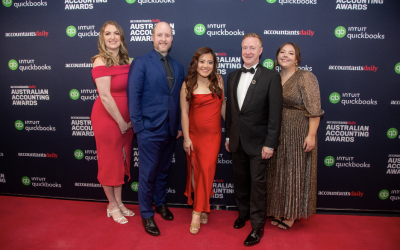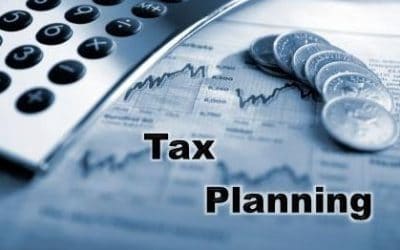Business Tax Returns
Every company must lodge a company tax return each financial year. The company tax return advises the ATO of any income and expenses of the company and/or business for the financial year. This is then used to calculate the income tax payable or refundable.
A company tax return needs to be lodged even if there has been no trading or there is no tax to be paid.
Required Items for a Company Tax Return
Some items that are required to be listed in the company tax return are:
- Whether the business is eligible for small business tax concessions
- Balance sheet items
- Dividends paid to shareholders, as well as the Franking Account balance
- Payments made by the company to associates (example wages, bonuses and superannuation)
- Loans to shareholders or associates, including Division 7A loans.
- Any carried forward capital or trading loss
- Any Personal Services Income (PSI)
There are a lot of other more complex items to be included on a company tax return that we can assist you with.
Rubiix has over 25 years of experience with business clients in preparing company tax returns, so why not use us?
Getting an Extension to Lodge a Tax Return
If you use Rubiix to prepare and lodge your company tax return, the company may be eligible for an extended due date for lodgement of the tax return. You also have the peace of mind that the tax return is being prepared by experienced business accountants, where all eligible tax concessions have been sourced for each return.
Goods & Services Tax (GST)
Goods & Services Tax (GST) is charged on the supply of most goods & services in Australia (currently 10%).
Businesses register for GST when their turnover is $75,000 or more through their ABN (Australian Business Number).
You can account for GST via two methods: Cash basis or non-cash basis. There are set criteria for each method before a business determines how to account for GST.
Note – the method you use will determine when you must account for GST and when you are able to claim GST credits.
Businesses claim their GST credits at the end of a tax period. A tax period is either a period of three months ending on 31 March, 30 June, 30 September or 31 December, or a calendar month. You may be able to elect an annual tax period.
Business Activity Statements
Businesses use activity statements to report and pay a number of tax obligations, including GST, Pay As You Go (PAYG) instalments, PAYG withholding and Fringe Benefits Tax (FBT).
You can lodge and pay your obligations electronically, by mail or in person. You must lodge on time to avoid interest and penalties. As Rubiix is a tax agent, lodgement of these forms can be done through our office directly to the ATO.
The ATO issues the activity statements before the end of the reporting period, which is usually every three months or every month, as required.
Rubiix Chartered Accountants are experts in assisting companies with their company tax returns so why not take the pressure off yourself and Contact Us to handle your company tax requirements today!
Pay As You Go (PAYG) Income Tax Instalment
Pay As You Go (PAYG) instalments is a system for paying amounts toward your expected end of year income tax liability. The Australian Tax Office (ATO) calculates and assesses the actual income tax liability when the annual company tax return is lodged.
There are 2 options available to calculate and pay PAYG instalments:
Instalment amount
The ATO calculates a quarterly payment amount by using the business and investment income from the most recent tax return lodged. This is a set amount payable each quarter.
Instalment rate
The ATO provides you with an instalment rate that you can use to calculate your own PAYG instalment, quarterly. This is done by using the actual income the business has earned multiplied by the rate the ATO has provided.
The ATO will send out a PAYG Instalment notice to the business owner with the pre-printed amount or rate. Each quarter it is then to be paid by the due date written on the notice.
If at any stage you feel that you are paying too much or not enough, the instalment amounts can be varied but must be done so before the due date.
Fringe Benefits Tax (FBT)
Fringe Benefits Tax (FBT) is paid by employers on certain benefits they provide to their employees in relation to their employment (cars, car parks, housing for an employee, etc.). FBT is calculated on the taxable component of the fringe benefits provided.
Employers can generally claim an income tax deduction for the cost of providing fringe benefits and for the FBT they pay.
If you are required to pay FBT you will need to register with the ATO. Employers must self-assess their own FBT liability each FBT year (from 1 April to 31 March) and complete an FBT Return. This is usually done via us at Rubiix.
The Current FBT rate is: 46.5% (Nov. 2013).
Payroll Tax
If you are a business with employees you will need to pay Payroll Tax which is calculated each year based on the wages paid by an employer to its employees.
Employers must register for Payroll Tax with the State Revenue Office (SRO) if during any one month their total wages exceed the relevant monthly deductions threshold level of $45,833.00 (in Victoria).
This tax is payable by the seventh day of the month following the month in which their wages exceeded the deduction threshold level.
Penalty tax and interest may be payable on any unpaid tax if an employer who is liable for payroll tax fails to register. Registration must be completed electronically through the SRO who will then provide confirmation and information on how to access the Payroll Tax Express facility.
At the end of each tax year, employers are required to do a reconciliation.
The Payroll Tax rates vary from state to state in Australia as follows:
| State | Rate | Monthly deductions threshold level |
| VIC | 4.90% | $45,833 |
| QLD | 4.75% | $91,666 |
| NSW | 5.45% | $57,534 – $63,699 |
| SA | 4.95% | $50,000 |
ASIC Requirements
With any company structure, there are legal obligations. Each Director/s of a company must meet yearly. Each year on the anniversary of the company formation, ASIC sends out an Annual Company Statement and invoice.
The Director/s is to confirm the company is solvent and all the current details on the ASIC database are true and correct.
For further information about ASIC and Rubiix Corporate Services page or Contact Us.

We Minimise Your Tax To Maximise Your Profit
Contact Rubiix and ask about our various business accounting services that will maximise your business profit!



